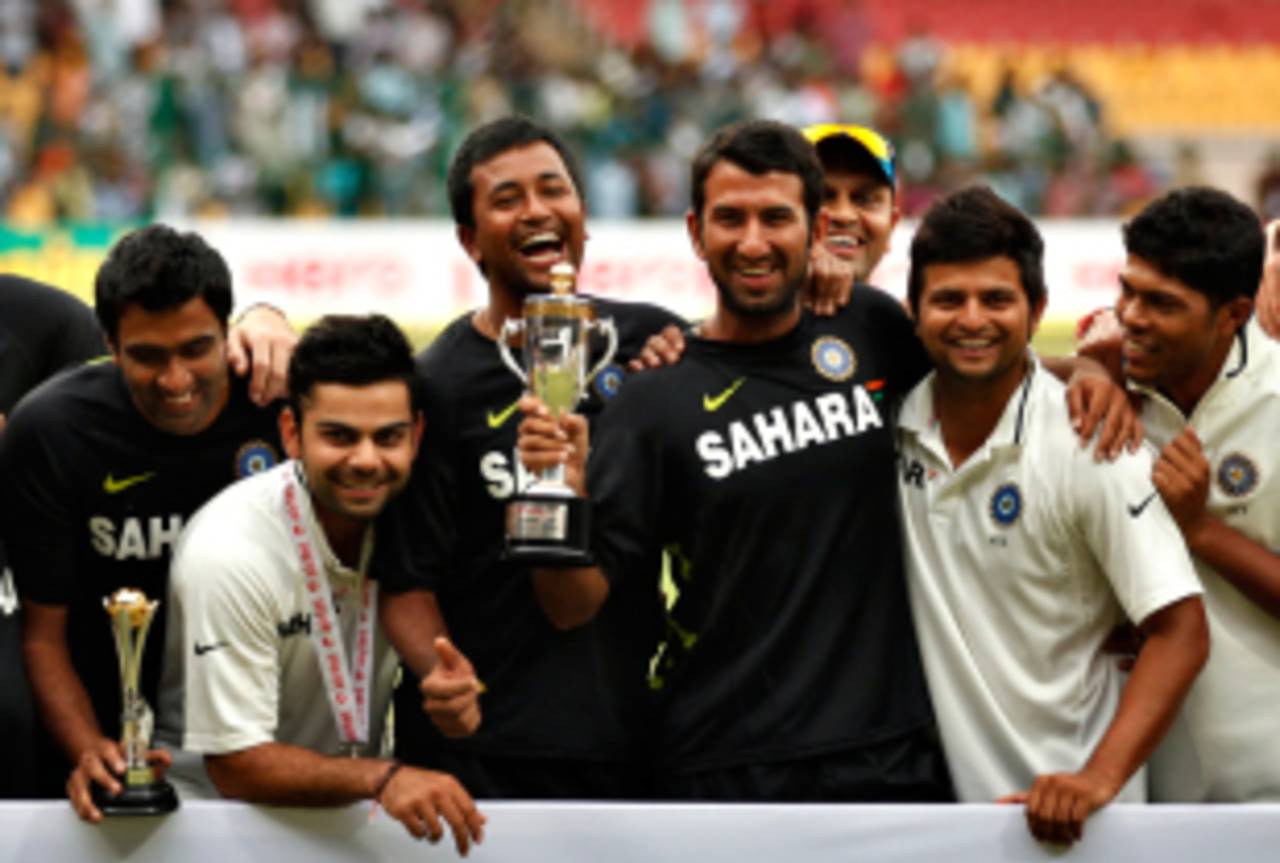Sourav Ganguly doesn't sit on the fence. He can be a contrarian at times, as when he spoke positively about the present state of Indian spin bowling. He can be extreme yet sound logical, as when he said every Indian fast bowler should have a personal trainer. And yes, he is proud of his legacy - that of changing India's image as poor travellers. He doesn't hold back - and he didn't on Friday while delivering the Dilip Sardesai memorial lecture at the Bombay Gymkhana.
Ganguly has seen plenty of young Indian fast bowlers burn out or lose their pace in a matter of a few seasons, and put it down to the lack of a proper fitness and training culture in India. "Since 2000 the main reason for having overseas coaches and trainers in India was to get a proper fitness culture," Ganguly said. "I remember on the 1996 tour of England, I went to the gym only once - that too, to see it and not to use it. It was a three-month tour and I had an outstanding tour. But I could not remember going to the gym and getting onto the treadmill. That culture needed to change. You don't get a Kapil Dev all the time.
"There is so much cricket being played in the modern day. Players are on the road all the time. Fast bowling is a difficult art. Every Indian fast bowler of the modern era needs to have a personal trainer. Finances are not a problem. They can afford it. They should have a personal trainer with them right through the year. When you go to a gym alone, at times, you take the easier, safer option. There should be someone with you looking after your strength and monitoring it all the time. When you see Zaheer Khan in 2000 and Munaf Patel in 2004 they clocked almost 150 [kph], but two years down the line, they settled down to line and length bowling, which I think is mainly because of a lack of physical strength."
Ganguly was optimistic, though, when asked by presenter Harsha Bhogle about current Indian domestic cricket not producing the high-quality spinners it used to. "When I saw Ashwin and [Pragyan] Ojha bowl in the Test matches against New Zealand, although they will have some distance to go as we have England and Australia coming, I don't feel the cupboard is empty. The problem is we Indians in domestic cricket are such good players of spin that a very good spinner is sometimes made to look average in those conditions and with players who have been brought up on spin bowling. Everytime those players graduate and play Test cricket, they look different bowlers."
One thing Indian spinners do need to learn is the art of bowling overseas, Ganguly said. "When you see the team lose eight out of eight [overseas] Tests the time has probably come when a lot of these young spinners need to bowl on flatter and non-responsive wickets in India to learn the art of bowling overseas."
"Overseas" brought with it questions on the India side of the early- and mid-2000s that, under Ganguly's leadership, began to win overseas Test matches and Test series, something India had struggled to do, especially in the 1990s. Ganguly said when he started his international career, there was "a certain disrespect" towards touring Indian sides.
"When I first played in 1996 on the tour of England, I could see a different attitude towards Indian players. We were not the best travellers abroad. You could see a certain disrespect when you went to England, Australia and South Africa. 'These boys are soft, they will come to this part of the world, you will see a hundred from Sachin, from Dravid, but they'll lose. They might draw a Test, but we will win the series.'
"I could make out that when you walked around the dressing room, the confidence was not there, the knowledge was not there of how we could beat England in England, and Australia in Australia."
Ganguly said winning the
famous Kolkata Test of 2001 against Australia had given the team the belief that they could beat the best in the world. It would not have been possible, Ganguly said, without the kind of quality players he had in his team.
"I was also blessed as captain to have an era of terrific Test players - Sachin, Dravid, VVS Laxman, Virender Sehwag, Anil Kumble… because I am a firm believer of a captain being only as good as his team. You can take the best captain in the world but if you don't have a good team, then you will go nowhere. A perfect example is Ricky Ponting. You look at his record when Hayden, Gilchrist, McGrath and Warne were playing and once they retired. Like chalk and cheese.
"It was a conscious effort to get that culture in the team. 'Listen, we will win in India'. There have been Tests where I have stood at point, given the ball to Anil and Harbhajan, they would set the fields and we would win the match - that would not happen abroad. We didn't have the batting, the knowledge, the batting toughness to put 500 runs on the board, to win a Test when we went abroad."
Ganguly said he was confident, despite India's recent struggles overseas, that the current generation of players was capable of taking Indian cricket forward. "When I see players of the ability of Kohli, Pujara and Dhoni and some of the other young names, it makes me believe that Indian cricket is in safe hands."
Abhishek Purohit is an editorial assistant at ESPNcricinfo
